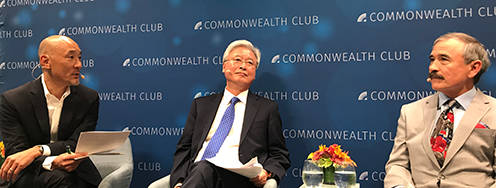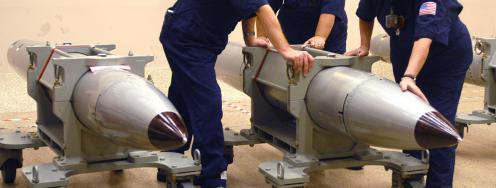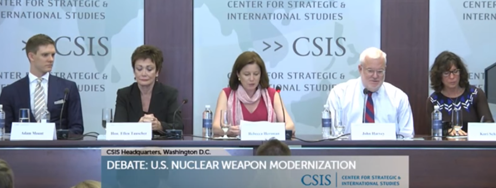The Pentagon-led Nuclear Posture Review (NPR), expected to be released in March, will establish policies for the U.S. nuclear deterrent over the next five to ten years. Arms Control Wonk blogger and Ploughshares Fund grantee Jeffrey Lewis describes the NPR debate over “declaratory” policy, or public statements about the role of U.S. nuclear weapons, as between those who want to declare that the “sole purpose” of U.S. nuclear weapons is to deter and, if necessary, respond to nuclear attacks, and those who want to limit the role to “existential” threats. Lewis, who writes he does not think it would ever be in the interest of the United States would initiate the use of nuclear weapons, says “the United States maintains nuclear weapons to deter and, if necessary, respond to nuclear attacks against ourselves, our forces, or our friends and allies.” Nevertheless, whatever the appeal in theory, in real life “calculated ambiguity” degenerates into the clumsy brandishing of nuclear weapons, writes Lewis.
In a
recent Global Security Newswire article, co-chairman of the International Commission on Nuclear Nonproliferation and Disarmament and former Ploughshares Fund grantee
Gareth Evans, said about President Barack Obama on the NPR, "The Prague speech just stated, of course, that it was the U.S. objective ... to reduce the salience of the role of nuclear weapons but it wasn't really spelled out in any more detail than that, whereas all the other elements of the Prague speech have since then have largely been operationalized," said Evans, “To the extent that the world is waiting for the NPR is very much to see what is happening on the doctrine front."
"It's hard to see" where the policy discussion within the Obama administration about adopting the sole purpose position will land, says to
Hans Kristensen, director of the
Federation of American Scientists' Nuclear Information Project. A sole-purpose declaration would be a "fundamental" change that would allow for other major alternations to U.S. nuclear policy, says
Stephen Young, a senior analyst at the
Union of Concerned Scientists. These could include reducing the number of warheads and the alert posture of the arsenal, he said. However, there are other recommendations the Pentagon-led examination could make that would similarly promote disarmament, according to Young. An example would be removing U.S. warheads from Europe, he said.



